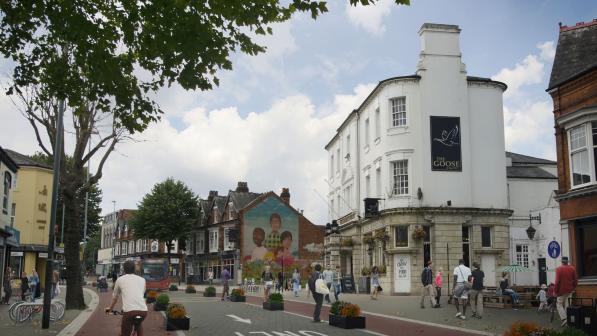This Road Safety Week stand up for cycling and walking

Although cycling is not in itself a dangerous activity, Road Safety Week plays an important part in making sure we don't lose sight of the fact that when people head out onto the road, by bike, foot or in a car, far too many never return home.
Entirely avoidable road traffic collisions remain the leading cause of death amongst young people worldwide, and in the UK five people lose their lives every day on the roads.
As well as taking a moment to reflect on the lives lost, as I will be doing this weekend at the World Day of Remembrance for Road Traffic Victims (local services nationwide are open to the public), Road Safety Week is also a spur for action. It’s fantastic to see that almost 2000 events will be held over next week, helping people improve safety in their local community.
Road Safety Week plays an important part in making sure we don't lose sight of the fact that when people head out onto the road, by bike, foot or in a car, far too many never return home.
Keir Gallagher, Cycling UK's campaigns officer
At Cycling UK, much of our campaigning is focussed on, or at least related closely to, improving the safety of cyclists. because helping people feel safe on the roads enables them to take up cycling more regularly – after all, when road safety fears are the biggest barrier to getting on the bike, improving how safe people feel when they’re cycling is vital if we want to get a million more people pedalling.
Whether it’s our award-winning educational behaviour change campaigns, like the Teach the Reach and Too Close For Comfort, which improve driving standards around cyclists, the lobbying we do to ensure dangerous driving is treated appropriately by the law, or even our work to open up off-road trails so that everyone has access to motor traffic-free riding, road safety feeds into almost everything we do.

However, as much as these individual measures play a vital role, there’s no getting away from the fact that one of the most impactful ways to make cycling more accessible is to offer segregated cycle space which keeps new cyclists out of conflict with other vehicles, especially in the urban areas where 82% of us live.
The evidence all agrees: when you build high quality cycling infrastructure, people get on their bikes. Yet despite plenty of pro-cycling lip service from various governments, one thing has always been lacking: proper funding.
Nonetheless, slowly but surely, attitudes are beginning to change, with a growing realisation that cycling can be the ‘miracle pill’ the country needs to tackle the health, air quality and environmental crises, reliving pressure on the NHS, while boosting productivity and revitalising our high streets.
Many of the problems to which cycling offers a solution are, unsurprisingly, key areas of concern in the upcoming general election.
That’s why, next week, Cycling UK will call on every parliamentary candidate, from every party and in every part of the UK, to back a pledge that, if elected, they will support significant investment in cycling and walking. Cycling UK wants to ensure the new parliament – whatever colour (or colours) of Government we end up with – is filled with strong voices who support the investment of much-needed funds into cycling.
And you can help us. From next Thursday, you’ll have the opportunity to make it clear to your candidates that this is something that matters to voters.
You’ll be able to see which of the candidates in your constituency have taken the pledge, and write to those who haven’t to ask that they do. Follow us on Twitter or Facebook for updates - or just head to our website.
So please make sure you take a moment during Road Safety Week to write to your candidates, to step up for safer streets, and to stand up for cycling.

